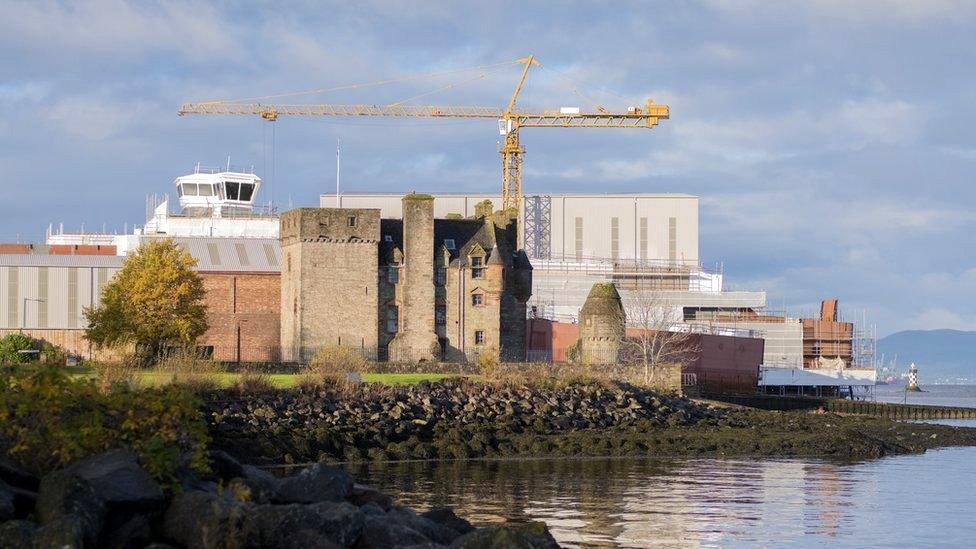Ferguson yard's fate 'close to irreversible' in 2005, papers reveal
- Published
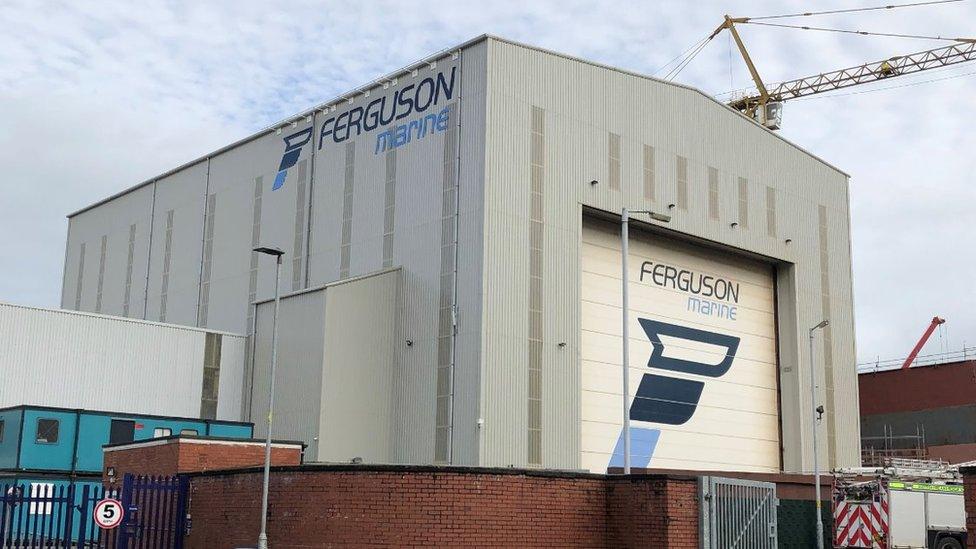
The fate of a now Scottish government-owned shipyard was deemed "close to irreversible" in 2005, according to newly released papers.
Ferguson Marine in Port Glasgow was nationalised in 2019 after it collapsed into administration.
But Scottish ministers appear to have foreseen its downfall 15 years ago.
In minutes of a cabinet meeting from 1 June 2005, ministers discussed how the yard's fortunes "had declined to a state that was close to irreversible".
The controversy over the awarding of a contract for fishery protection vessels and a CalMac ferry to a Polish yard was the topic of discussion.
Losing out on the contract prompted Ferguson to lay off 100 members of staff.
Speaking two months before the awarding of the contract, then environment and rural affairs minister Ross Finnie said: "If the contracts were awarded to the Rementowa (Polish) yard, there were no other orders in prospect for the Clydeside shipyard and since the launch of its last ship a month previously, the yard had declined to a state that was close to irreversible."
The cabinet also noted "with concern the outlook for the Ferguson shipyard".
In another meeting of the cabinet in August 2005, Mr Finnie is shown to have pondered the communications issues with the contract.
Minutes of the meeting said: "It was difficult to explain to Scottish taxpayers why public funds were being used to buy a vessel from Poland and make redundancy payments to shipbuilders in Port Glasgow."
Ferries fiasco
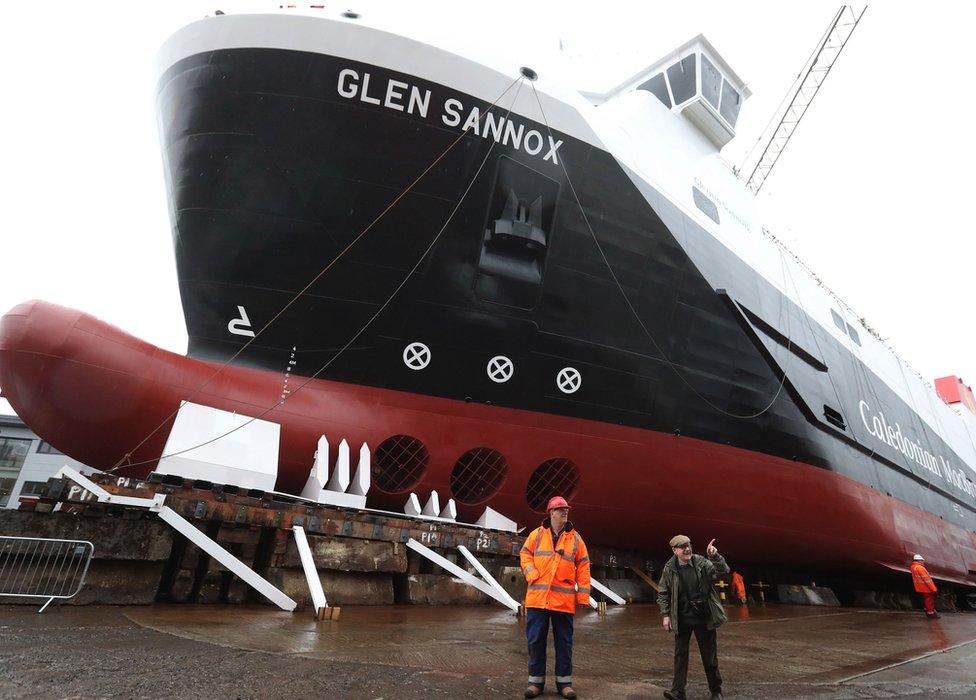
Ferguson went into administration following a dispute over the construction of two ferries under a £97m fixed price contract
In 2019 the yard was brought into government hands, following controversy over two ferries being produced there.
Ferguson went into administration following a dispute with Caledonian Maritime Assets Ltd - which buys and leases CalMac ships on behalf of the Scottish government - over the construction of two ferries under a £97m fixed price contract.
It was discovered by the Scottish government that the vessels would face significant delays and cost more than double the initially quoted price, prompting a Holyrood inquiry this year to describe the procurement process as a "catastrophic failure".
When the Scottish government began operating the yard under a management agreement with the administrators last year, about £50m of taxpayer loans to Ferguson Marine were written off.
The Scottish government has kept paying the shipyard's running costs, including its wage bill for 300 people, following administration.
The shipyard had previously been rescued by businessman Jim McColl after it faced administration in 2014.
What else did we learn from the newly-released papers?
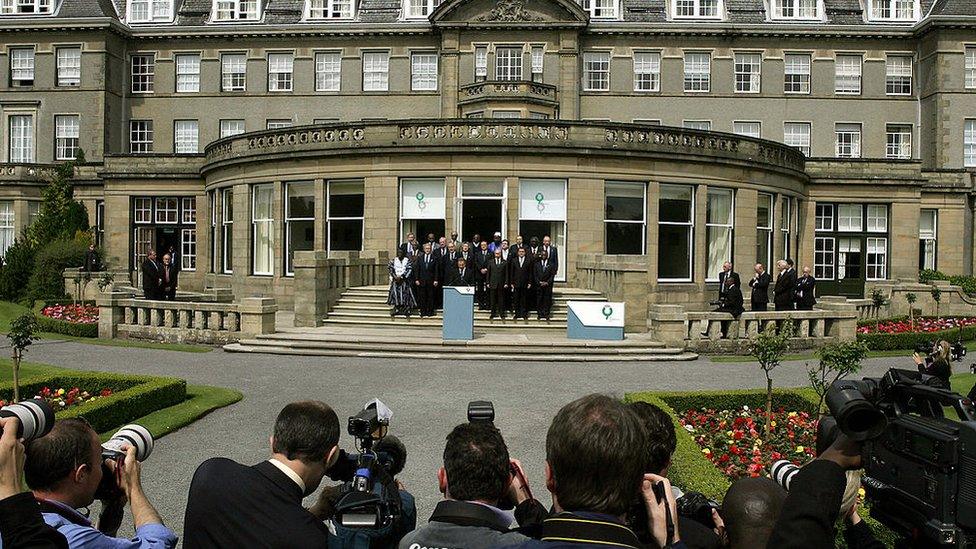
World leaders gathered at the Gleneagles hotel in 2005
The National Records of Scotland release cabinet records 15 years after they were first made, meaning formerly private documents from the mid-2000s are now available to the public.
Other revelations in the papers from 2005 include:
The Scottish Executive, as it was then, was bracing itself for a flu pandemic which could kill up to 45,000 Scots in a "worst case" scenario
The G8 summit at Gleneagles brought "Scotland into the middle of the frame" for terrorists
And council education officials were warned about the risk of anti-Muslim bullying in Scotland's schools following the 7 July terrorist attack in London
- Published5 February 2020
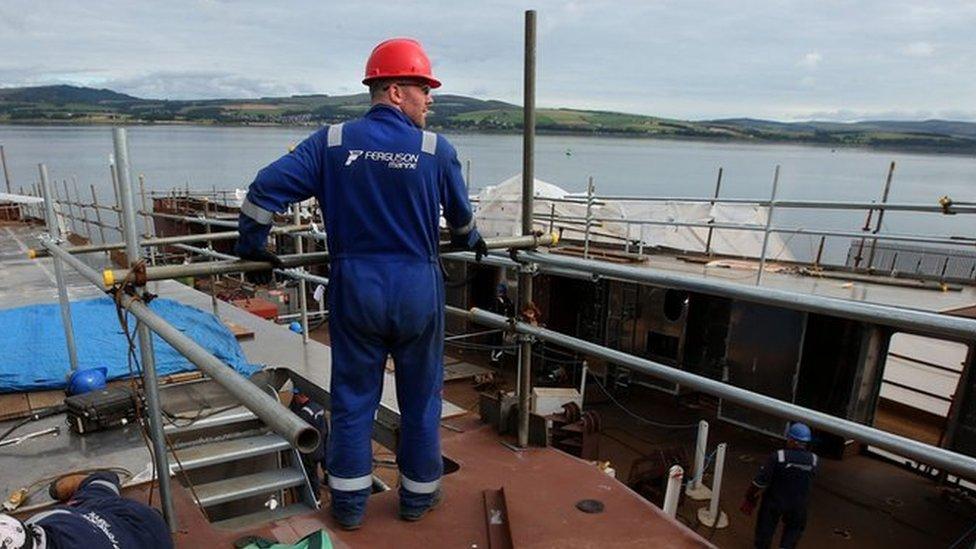
- Published18 December 2019
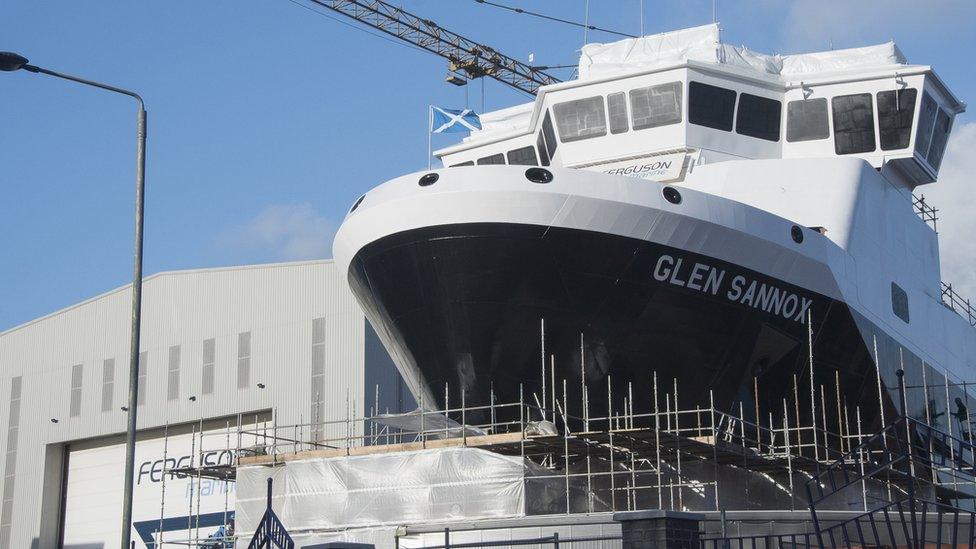
- Published2 December 2019
